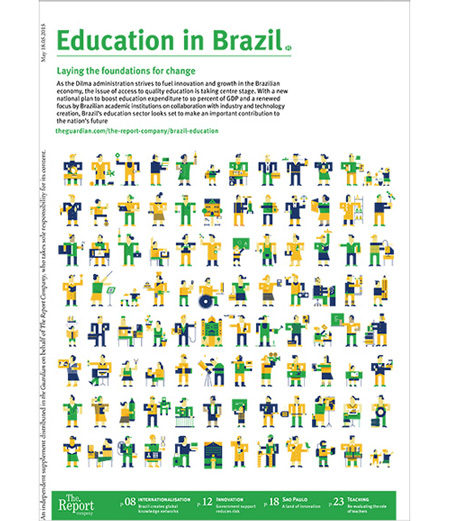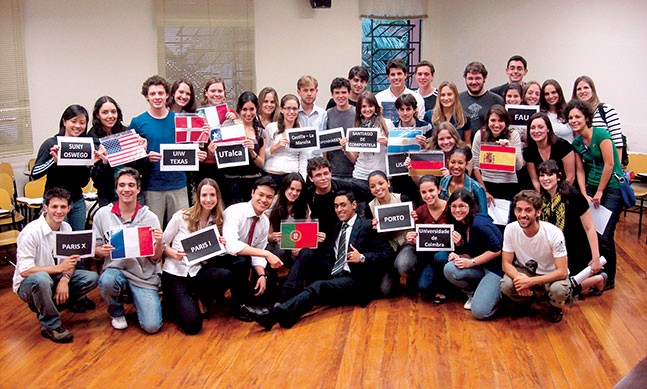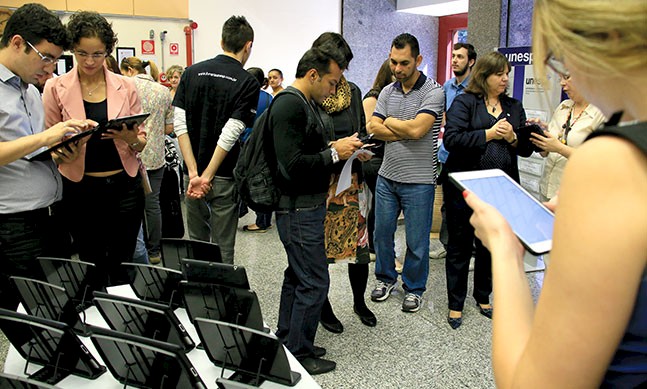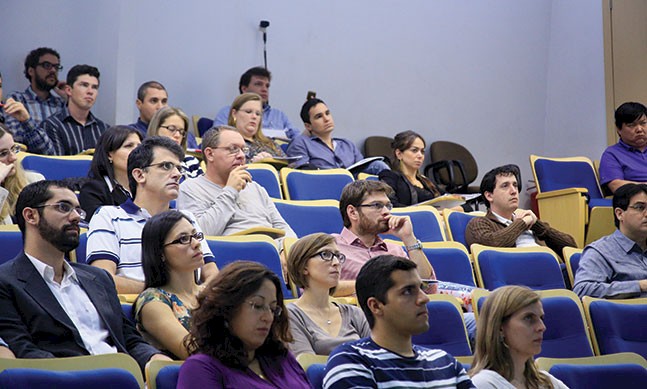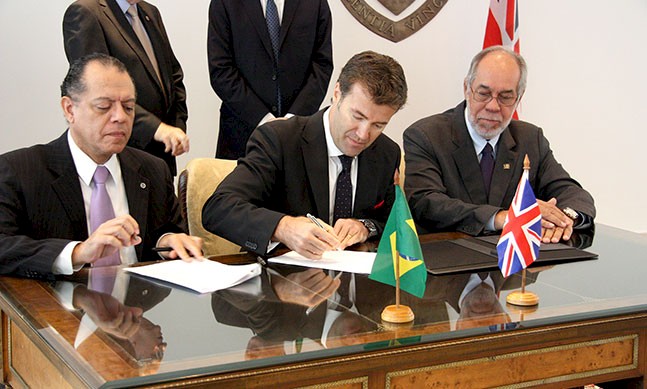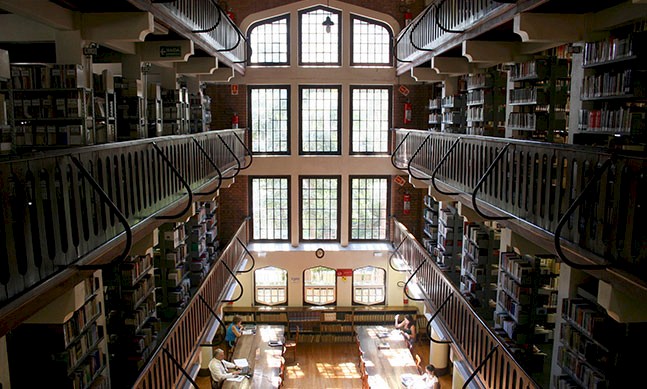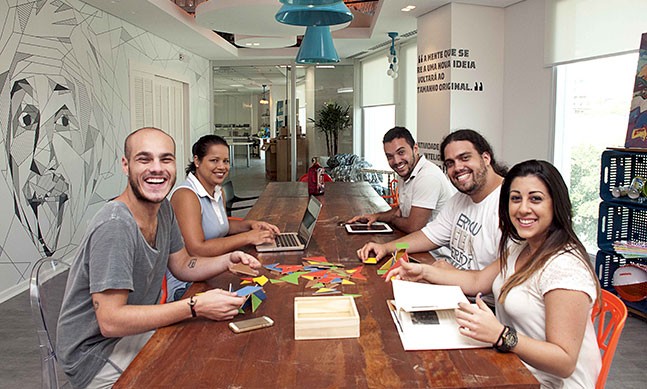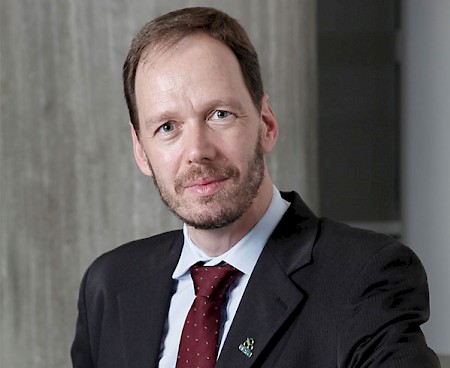
Seventeen years ago, Dr Klaus Capelle started a post-doctorate at the University of Sao Paulo after finishing his studies in his native Germany. The one-year project soon became two, and six years later he became a professor at USP’s Sao Carlos institute. In 2008, he was invited to participate in the newly created UFABC university, of which he became rector in February 2014. Today, as Brazil’s only federal university in which all professors hold PhDs, UFABC has quickly established a strong reputation for research and internationalisation, as well as priding itself on social inclusion.
The Report Company: How would you appraise Brazil’s education system and the work being done to meet the modern demands of the international market?
Dr Klaus Capelle: In recent decades, there has been considerable progress in Brazil in many aspects and the education sector is certainly a part of this, but the starting point of that evolution was rather low. There has been quick and impressive progress, but we are still below what should be considered an adequate situation for a country the size of Brazil.
TRC: There has been a rapid growth in the number of students in higher education, but the challenge is to maintain quality. How do you see the process of inclusion, especially at ABC?
KC: We do not see any conflict between inclusion and quality, and our numbers back up the theory. UFABC seeks excellence and we want to be one of the greatest universities in every aspect, from teaching to research to management, but we also seek social accountability. We were one of the first universities in Brazil to set aside 50 percent of our seats for minorities even before it was mandatory, and we have seen no clash between excellence and social inclusion.
At the outset there may be a relatively small difference in academic achievement between the groups, but at some point that difference disappears. There is huge competition within the quota group and those that get through are excellent. We have shown that it is possible to combine excellence and social accountability without prioritising one or the other. The challenge is keeping up with both goals.
TRC: French newspaper Le Monde recently cited the sizeable resources afforded to your university, so the ABC success story is spreading. How did you reach this point so soon?
KC: The initial investment in UFABC has been great, because we literally built it from scratch. We didn’t even have a building, so we started by renting and over the following eight years we built this campus in Santo Andre and all the buildings we have here, as well as our second campus in Sao Bernardo. The construction of these very sophisticated laboratories with very strict specifications required huge resources, so when people refer to the amounts invested in UFABC they are actually talking about the physical construction of the university. Post-construction, the operational budget of the university per student or per professor is no different to that of other federal universities.
“There has been considerable progress in Brazil in many aspects and the education sector is certainly a part of this.”Tweet This
TRC: What has been the impact on local industry as a direct result of the university’s presence here?
KC: We spent a long time spreading the word about the university in the region, creating contacts in industry, looking for partnerships and agreements. We want our students interning at their companies and we want them hiring our graduates, but we also want research partnerships. Companies can greatly benefit from the competence of our researchers and the laboratories we have, so we have hundreds of internship agreements along with around 20 for research.
TRC: Do you believe that the private sector should be more dynamic and take a leading role in research and patents, or do universities have a role to play too?
KC: There is no extensive history of collaboration between industry and higher education in Brazil, so it is something that both sides must work on and the government should help to create the conditions to help these partnerships flourish. Patents, on the other hand, are part of an ongoing global debate. We encourage our professors to file them and we have a unit dedicated to inventors and innovators. We are already seeking private sector partnership for several patents because it is something that we believe in and that companies are starting to see the benefit of, too.
TRC: Which is more proactive? Industry or education?
KC: Their reality is very different from ours, but, it is safe to say that universities are definitely more proactive than the private sector, and for the most part, it is we who seek to contact companies rather than the other way around.
As for research being profitable, patents themselves do not bring in money. They cost us money through lawyers and the National Institute of Industrial Property where they are kept. A patent only starts generating revenues when a company licenses it and, the world over, only a small percentage ever reach that stage. The same is true of companies like Samsung or Apple who amass vast numbers of patents and use very few. Patents are a recognition of our productivity and a long-term investment, but never immediately profitable.
Despite that, research can generate resources for universities. UFABC's primary source of funds, as with all federal universities in Brazil, is the ministry of education, but the second most important are funding agencies such as Fapesp, CNPq, Capes and Finep. A substantial part of our budget comes through research projects with them.
TRC: You are the number one university in terms of international reach. How has that happened so quickly?
KC: Being top of the Folha index was also a matter of great joy for us. We chose internationalisation as one of our priorities and we participate actively in the Science without Borders programme. More than a thousand of our students have been approved by the program which has around 100,000 grants in total. That means that around one percent of the programme goes to UFABC students in a country with more than 2,000 higher education institutions.
We have an entire unit dedicated to international relations and we actively encourage our professors to seek international partnerships. A substantial portion of our resources are used to enable our students and professors to participate in international congresses, more than most universities, and we invest greatly in the training of our technical staff for international relations.
“We do not see any conflict between inclusion and quality, and our numbers back up the theory.”Tweet This
TRC: During your campaign for the rector's office, you spoke about modernisation, inclusion and the decentralisation of the decision-making process. Is that something the universities lack?
KC: In Brazilian universities, every stratum of academic society has a strong desire to participate, much more so than in European universities. Here, the rectors are elected, which means the job has a political aspect to it. The elections are an opportunity for the community to have their say. What I said during the campaign, and what we have been trying to do, is to listen to the community. We do a lot of surveys. Right now we have several ongoing, one concerning safety around the campus surroundings and another on professors working on multiple campuses. We carry out frequent meetings with all sectors of the community.
TRC: How do you think the market sees UFABC?
KC: UFABC still has to earn its reputation in the marketplace. Rankings help increase visibility and disseminate your brand, but we will only truly earn our reputation through the quality of the professionals we produce. The university is young, so companies do not know us yet and none of our students have reached the upper echelons. We have many professionals in many companies of the region, however, and our quality is now being recognised.
TRC: What is your opinion of the future prospects of the Brazil-UK relationship?
KC: England is a strategic partner, and I speak not only as the manager of a Brazilian university, but also as a professor. I did part of my doctorate at the University of Bristol and I have an academic collaboration with the University of York so I am well aware of the qualities of English universities. Out of more than a thousand UFABC students approved by the Science without Borders programme, 168 went or will go to the United Kingdom, making it second only to the US.
“There is no extensive history of collaboration between industry and higher education in Brazil, so it is something that both sides must work on”Tweet This


